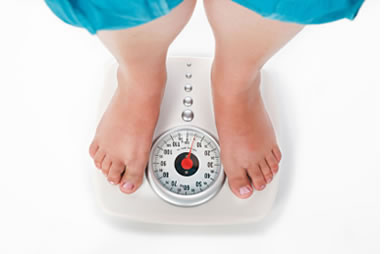Smoking is an expensive habit. Beyond the $5 to $13 for a pack of cigarettes (depending on where you live) it also costs the lives of 480,000 Americans, $300 billion in medical expenses and $156 billion in lost productivity each year, according to the CDC. With such a staggering expense at stake, it's hard to believe that more than 16 percent of U.S. adults were still smoking as of 2014.
If you're one of the 40 million people who are still lighting up, you probably already know it's bad for your health. Maybe you've thought about quitting, but aren't sure you have the willpower to give up such an addictive substance. The first step is to identify your reasons for kicking the habit, from staying alive to enjoy your grandchildren to getting rid of the unpleasant smell. Need some quitting inspiration? Read on for 50 good reasons to stop smoking, no butts about it.
For Your Health - Cigarette smoke can cause heartburn (or make symptoms worse, if you already have it).
- If you're a woman taking birth control pills, you have a significantly higher risk of stroke or heart attack than women who don't smoke.
- The main components of tobacco smoke are carbon monoxide (a poisonous gas), tar (a proven carcinogen) and nicotine (a highly addictive insecticide). Still have the urge to light up?
- Of all the deaths caused by 12 different cancers, smoking is the culprit behind half of them.
- Your mental health depends on it. Smokers are three times more likely to suffer from a form of psychosis.
- On average, non-smokers live 10 years longer than smokers, per the CDC.
- Is there a surgery in your future? Post-op wounds heal slower for smokers than for non-smokers.
- Middle-aged women who smoke are almost five times more likely to die from heart disease than non-smokers.
- Your heart disease risk will be half of what it was as a smoker one year after quitting.
- Studies show that when a smoker breaks a bone, it takes about six weeks longer to heal than the bone of a non-smoker.
- If you combine the number of people who die from drug use, HIV, car crashes, alcohol abuse, murders and suicides, it will still be lower than the number of deaths caused by tobacco.
- Go with your gut. Lighting up is bad for your intestinal health.
- All that puffing does a number on the mouth. As a smoker, you'll be at a much higher risk of gum disease, canker sores, cavities and tooth loss—not to mention oral cancers.
- Smoking lowers your "good" cholesterol, which increases the risk of heart disease.
- Studies show that people with Alzheimer's who smoke will lose their mental faculties up to five times faster than non-smokers.
- Smoking changes the consistency of your blood, making it thicker and harder to circulate. This can ultimately cause clogged arteries, blood clots and heart attacks.
- Already susceptible to developing rheumatoid arthritis? Smoking could be the tipping point.
- Just two hours after your last cigarette, your blood pressure, heart rate and circulation will all be close to healthy levels.
- Smokers are more than four times more likely to lose their eyesight due to macular degeneration.
- Quitting smoking is the single most important thing you can do to improve your heart health.
- Within nine months of quitting, your lungs will be functioning at a higher level, and you'll notice less coughing and wheezing.
- People who quit smoking are less likely to get colds, flu, pneumonia and bronchitis.
- When you smoke, less oxygen is supplied to the inner ear, which can cause hearing loss.
For Your Family’s Health - Your non-smoking family members have up to a 30 percent greater risk of developing lung cancer and heart disease due to exposure to secondhand smoke.
- Every year, around 2,000 babies die from Sudden Infant Death Syndrome after being exposed to secondhand smoke.
- Each year, between 150,000 to 300,000 toddlers and babies under 18 months old get pneumonia or bronchitis as a result of secondhand smoke, per EPA statistics.
- Smoking during pregnancy increases the risk of miscarriage, premature delivery, low birth weight and other medical complications.
- Monkey see, monkey do: If you have kids, they're more likely to pick up the habit if they grow up watching you do it.
- Residue from thirdhand smoke can be touched and inhaled by children (and adults) long after the cigarette has been extinguished.
- If you have babies in your life, they'll be happier and healthier. Tobacco smoke has been shown to increase the risk of colic.
- You'll be able to kiss your partner without passing on the taste and chemicals of nicotine.
- Want to stop snoring? Ditch the cigarettes: Your partner will thank you for the good night’s sleep.
For Your Confidence - Say cheese! You'll be able to smile for pictures without worrying about unsightly yellow nicotine stains on your teeth.
- Smoking accelerates the aging process, causing non-reversible wrinkles and sagging of the skin.
- Say goodbye to tar stains on your hands from holding cigarettes.
- Worried about gaining weight? Don't be. Quitting doesn't necessarily mean that you'll put on extra pounds.
- You can replace cigarettes with the healthier habit of exercise, which will nicely complement your new smoke-free lifestyle.
For Your Finances - Depending on where you live, a lifetime of smoking will cost you anywhere between one million and two million dollars.
- "Thirdhand smoke"—the smoke residue that accumulates on walls, carpets, clothing, curtains, cabinets and counters—can decrease the value of your home.
For Your Enjoyment of Life - Eating will be more enjoyable. Cigarette smoke can dull the taste buds and hamper your ability to taste foods, studies show.
- You'll finally be free of the constant worry about where and when you'll be able to smoke your next cigarette.
- There will be no more stepping away from dinners and social events to smoke, and no more sacrificing conversation for cigarettes.
- You'll no longer have to obsessively pop breath mints before talking to someone.
- Even the occasional cigarette can decrease libido, particularly for men.
- Within three weeks after your last cigarette, you'll notice that it's easier to breathe when working out or exerting yourself physically.
- Just 48 hours after quitting, all nicotine will be out of your body, and you'll notice an improved ability to smell and taste foods.
- You'll be able to stop and actually smell the roses—smoking hampers your sniffer's ability to detect scents.
For the Environment - You'll help to preserve forests and the ecosystems within them. Each year, between 20 to 50 million trees are cut down to make room for tobacco farms.
- Fewer smokers mean prettier beaches. Discarded non-biodegradable cigarette butts—which are carried from streets into sewers, and ultimately into rivers and oceans—are the single most collected item in international beach cleanups each year, per the International Journal of Environmental Research and Public Health.
- Tobacco plants require a large amount of pesticides—up to 16 applications—which harms birds, wildlife, soil and even the ozone layer.
The road to a smoke-free life isn’t always an easy one, but with personal motivation and a strong support system, you can break the cycle of dependency and live a healthier, longer life.
|
|

.jpg)


.jpg)









-Salmon/d6637946-83d1-4cbb-90c2-a40ab6ea8780.jpg)







